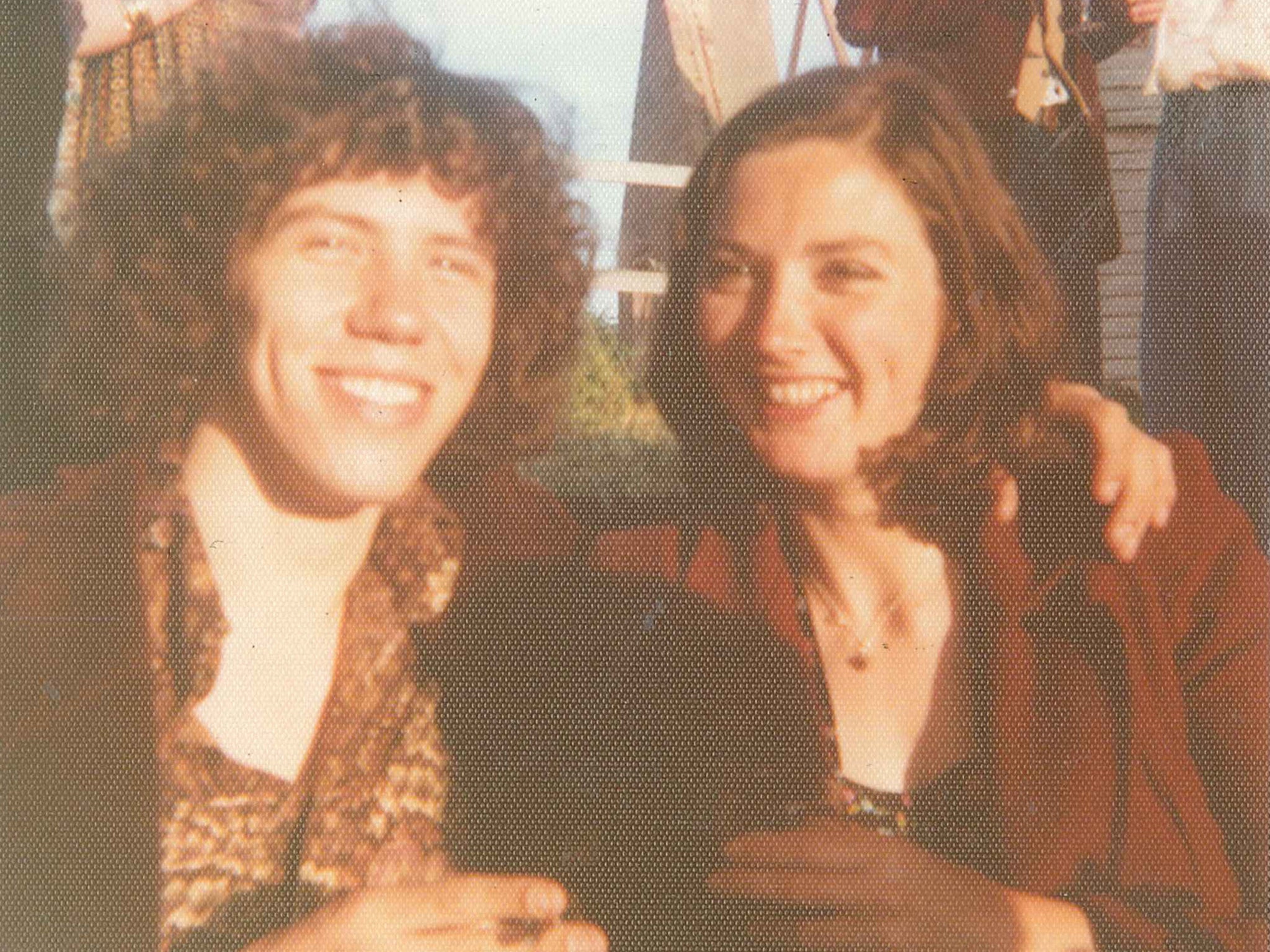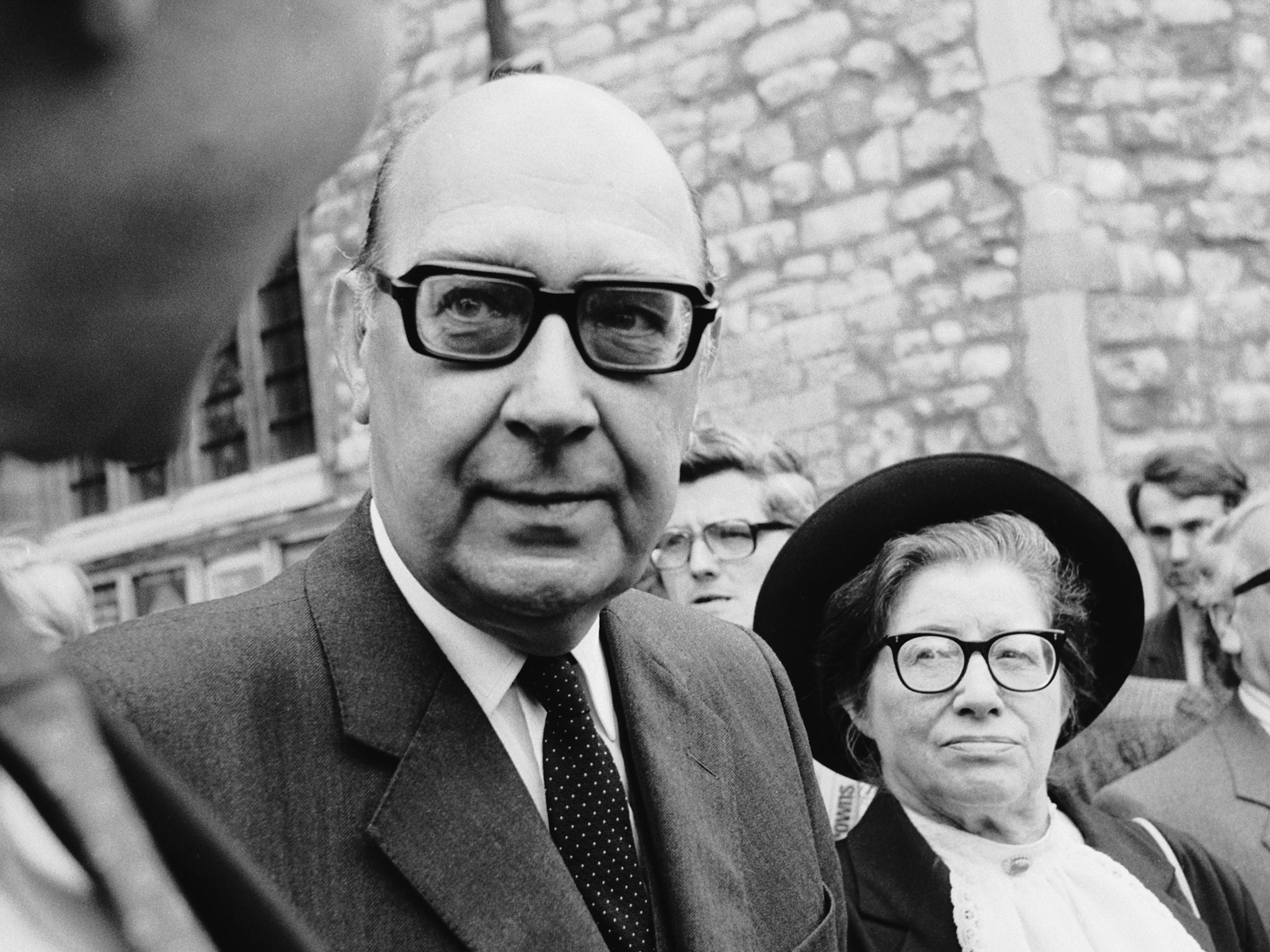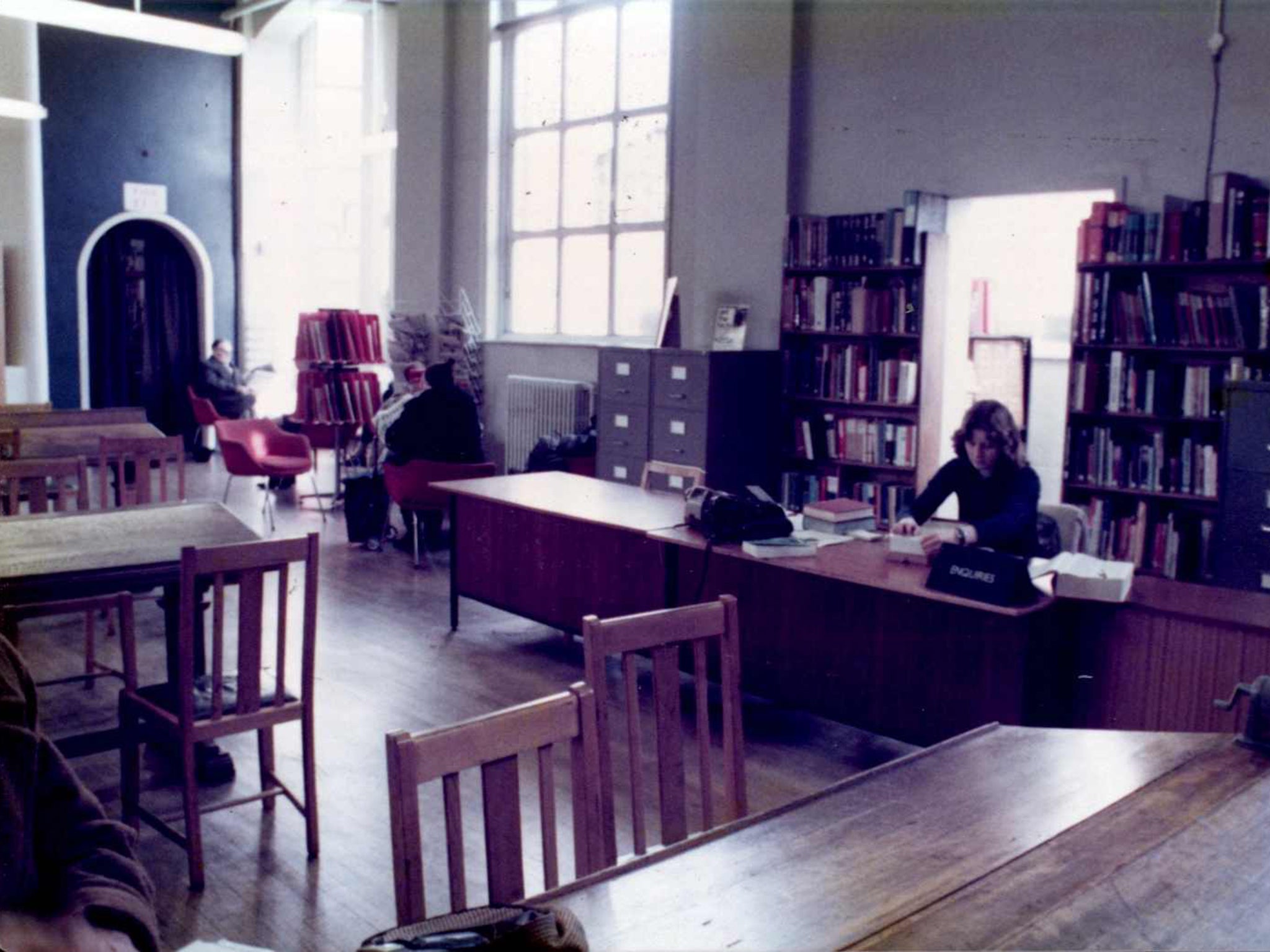Life as a librarian: How a young man's attempt to follow in the footsteps of Philip Larkin and Casanova ended in ignominy
I came across as an annoying, pedantic little busybody - that’s why I was fired

My career wasn’t going well. I was 21. I’d just left Oxford with an English degree and no immediate prospects. I’d applied to about 20 London publishers, languidly explaining that I was available, given the right salary, to accept a job with them, commissioning and editing books with my unique blend of insouciance and rigour; inexplicably, I’d heard nothing back.
I’d applied to the BBC as a trainee newsreader, but no urgent summons from the Director-General had followed. I’d been told that the chances of joining The Times as a leader writer were slim, unless you’d spent seven years’ apprenticeship writing news pieces about village fêtes for the Cleckheaton Gazette. I’d signed on the dole queue at the DHSS, and been offered a job in the zany world of after-hours office-cleaning, but little else.
Then my father told me that one of his patients worked for Wandsworth borough libraries, where a junior position had fallen vacant. “You’ll be surrounded by books, it’ll get you out of the house and you’ll have earned some money by Christmas, even if you give it up by then,” he said.
I thought about it. It wasn’t a cool profession, but Philip Larkin worked all his life as a librarian in Hull, and Casanova ended his life as librarian to Count Joseph Karl von Waldstein of Bavaria. Borges wound up as director of the national library of Argentina. Even Mao-Tse Tung had been a university librarian for a while. There was no disgrace in being the chap who lent out books to people, and pointed out a sign saying “Silence” to rowdy patrons.
I applied, and secured an interview with a glum, bearded cove called Palmer. He looked like one of the ministry types from a 1950s Ealing comedy. He came straight to the point.

“Have you any experience of lending out books?”
“Not really,” I said.
“Have you any experience of dealing with the general public?”
“Not as such,” I said, “though I tend to get on with people … generally.”
“Have you ever assumed managerial responsibility?”
“Not really,” I said, “though I ran the school chess club, if that counts.”
“Are you familiar with the Dewey Decimal System?
“Well I – no.”
“What would be your advice to a woman who wished to borrow a nursing romance, but cannot remember any titles or authors?”
“I suppose I’d –” I cudgelled my brains. Nursing? Romance? Then it came to me.
“I’d tell her to read A Farewell to Arms by Ernest Hemingway. It’s about a guy in the ambulance corps who falls in love with a nurse. She dies in the end.”
Mr Palmer raised a weary hand to his brow and scratched his eyebrows.
“Have you ever had occasion to remove a down-and-out or a drunkard from a public place?”
“No, but I’ve seen it done,” I said, failing to explain that I’d seen it done to me after six pints of Youngs Special at the Crooked Billet on Wimbledon Common.
He regarded me sternly. “You are obviously overqualified for this rather menial job,” he said, “and wholly unsuited in any practical way. But I’m going to take you on because the library needs an injection of young blood and I’m prepared to give you a try. You can start on Tuesday.”
I turned up early for my first day of paid employment, scrubbed, shaved, clean-shirted and humming with eagerness. How hard could it be to stamp books in and out, to be pleasant to lenders, to use a database, to put books on shelves? A simpleton could do it. But could I?
The library staff arrived. Phoebe, the deputy librarian, was a thin, pretty woman in her 30s who showed me the staff room, the snack machine, the loos. She had a charming smile but a vague manner; the smile stayed on her face after she’d stopped listening to you. And she habitually mispronounced French words.
“You’ll soon pick up the Dewey system of classifying books by subject,” she said, “But here’s a little card which tells you where to find, say, biographies or car manuals on the shelves. It’s a useful ‘aid memoya’.”
In the staffroom, a scruffy dive with tin ashtrays, old newspapers and unwashed coffee mugs, I met Janet, a plump, chronically malcontent fortysomething lady in a green cardigan. She interrogated me.
“So – where have you come from?”
“I live in Battersea…” I began.
“No, I mean – where were you before?”
“I was at university before,” I said. “Oxford.”
She exhaled heavily. “Which library were you at before this one?”
“I wasn’t at any library.”
“You must have come from somewhere,” she said crossly.
“I used to borrow books from Battersea library on Lavender Hill,” I said helpfully, “but that, er, wasn’t work. I haven’t actually worked anywhere.”
“So you don’t know the system?”
“I hoped someone would show me,” I said, with a glassy smile.
“Well, really,” said Janet. “Some people think they can march into a job with their fancy degree, with no experience, no CV, no background, nothing.”
I looked pleadingly at Phoebe.
“John is the new assistant,” said Phoebe, brightly. “They’ve decided we need some new blood, ‘ay voyla’.”
“I suppose Muggins here will have to show him around, will I?,” said Janet. Gruffly, she introduced me to the arcana of checkout and returns: you flicked the dockets from their little cardboard envelopes glued onto the books’ flyleaves, tucked them into a metal file, stamped them out with the satisfying ker-chunk! of the date-stamper. It all felt like being back at primary school.
I began to enjoy it. I was a whizz at shelving, I familiarised myself with every book in the Lit Crit and Biography sections. I chatted with borrowers, though I privately tut-tutted at their failure to take home new works by my favourite writers, Anthony Burgess, Angela Carter and Martin Amis. I haunted the record library, snaffling new albums by David Bowie and Bruce Springsteen.
I made friends with Gordon Ross, the head music librarian, a swishily theatrical gent in his 40s, who moved in a cloud of Aramis aftershave and was alternately friendly and bitchy. But I admired his rapport with the local Afro-Caribbeans. Black borrowers were seldom found in the main section, but I often saw Gordon in the music library surrounded by large black men with hair in braids and cornrows, laughing in huge baritone guffaws at what he was saying.
Janet told me during staffroom lunch that Gordon sometimes organised lessons for the black guys’ teenage kids, showing them how to sing “I’m Goin’ to Barbados,” a novelty hit record. “How nice of him,” I said, “to look after the needs of the local community. But reggae? Is Gordon a reggae fan? He can’t be. So what’s in it for him?” This was greeted by a mortified silence.
I developed a crush on June, the children’s librarian. She had wide blue eyes and a tiny rosebud mouth; she was clever but emotionally on edge. I found her in tears one afternoon. What had happened?
“It’s nothing,” she said. “I’m just being silly. The thing is, I like children. I became a children’s librarian to steer them towards the best things for their imagination to thrive on. But I swear, if one more little fiend asks, ‘Please Miss, can I have a picture of a shark biting a lady’s leg off?’ I will bloody throttle him.”
Yes, it was that summer – 1975, the summer of Jaws.
Then things started going wrong. Not big, serious things. Just … things.
One day, a woman came to the desk, asking, “Have you got anything by Genet?”
I looked at Phoebe, in an ‘After-you’ sort of way.
“Jenny” she said. “Jenny whom?”
“Not Jenny,” said the woman. “Genn-ayyy. The French guy. He was a criminal, admired by Sartre and Cocteau. He was locked up for years.”
“Ah, yes,” said Phoebe brightly. “You might look in the Social Welfare section. There are lots of prison books…”
“Hold on,” I said. “Are you after The Thief’s Journal, or Our Lady of the Flowers?”
“I think it’s the first one,” said the woman.
“Right,” I said. “See the end of the Fiction section, fourth shelf, by that door? The grey spine? That’s a Penguin Modern Classic of The Thief’s Journal.”
As the woman scuttled off, I gave myself an invisible pat on the back. Did I know the stock or what? But Phoebe wasn’t a bit impressed. “There’s no need to show off,” she said in a hurt voice. “I don’t think it’s terribly nice of you to try and make a fool of me in front of people. There’s more to life than being a smart arse, you know.”
I resolved to make up by good works. A week later, in one of the library’s back rooms, I discovered a cache of 100 books, evidently hidden away, over the years, from easily shocked members of the public.
There was The Joy of Sex, and Hubert Selby’s Last Exit to Brooklyn (the subject of an exciting obscenity trial when I was at school) and J P Donleavy’s The Ginger Man. There was a coffee-table book called Née de la Vague, photographs of naked female breasts flecked with seawater. All the books were, indeed, vaguely sexual – but their scandalous days were long gone. I resolved to liberate them, and spent a happy hour placing them on the main shelves.
In the staffroom, when I told Janet and Phoebe what I’d done, they hit the roof. How could I even dream, they shouted, of taking books from the Banned Room (was it really called that?) and reintroducing them to polite society?
“The Ginger Man was published in 1955,” I protested. “You can buy it in any WHSmith’s. Why should we be banning it in 1975?”
“You cannot go around just changing things,” snapped Janet. And within the hour I’d been reported to Mr Palmer. (For what? Insubordination? Smut redemption?)
Chastened, I went off to do some shelving. While returning some borrowed romances to the Mills & Boon trolley, I discovered, at the back of The Sheikh’s Virgin Bride, a line of initialled pencil marks ranged down a page like a shopping list. I flicked open The Passionate Shepherdess and Flames Over Zanzibar, and found the same pencilled spidery scrawls. Vandalism! I found an eraser and rubbed out the little marks in as many books as I could find.
“Someone’s been defacing the Mills & Boons,” I told Janet, confident that she’d approve my anti-vandal stance.
“We must find out who the miscreants are and punish them.”
“We know who they are,” she laughed. “Hundreds of women read these romances, but there are so many books with similar titles, the ladies can’t remember if they’ve read them – so they put their initials in the back of the ones they’ve read, to remind themselves. We’re fine about it.”

“But I’ve spent the afternoon rubbing out the marks,” I said sulkily. “Because I thought...”
She stared at me. “You bloody fool! How will the old ladies know which they’ve read now? They’re our most consistent regular borrowers, and you’ve gone and upset them. There’ll be complaints. Why do you have to interfere?”
Jesus. I decided that, henceforth, I would take no initiatives, I would just do my job, process books in and out, eat my lunchtime sandwiches, read the New Statesman and be quiet as a nun. Everything was fine for a while. Then the day dawned that sealed my fate.
In the morning, I was at the checkout desk with Phoebe, when a man filled in a request form asking for a new biography of Albert Camus.
“That shouldn’t be a problem,” said Phoebe. “I doubt there’ll be a big queue to read about Mr Came-uss.”
“I think, Phoebe,” I said, “It’s actually pronounced ‘Cam-ou’ and the S is silent.”
Something in her snapped at last.
“I’ve just about had enough of your clever-dick ways,” she said. “You swan about, telling people they’re not saying things right, putting banned books on the shelves, you upset our lady readers, you’re always hanging around June like a sick calf, you’re always implying God-knows-what about Gordon. You think you’re so important with your lah-di-dah degree, and that you can run the library, ahead of people who’ve slaved here for years, hoping to become manager some day. I mean, who the hell do you think you are?”
I couldn’t possibly go for lunch in the staffroom after such a dressing-down. So I went to the local pub, had a pie and two pints and tried to read David Lodge while my eyes stung and watered. I didn’t want to go back to work, in such a poisoned environment. But I couldn’t just give up my first job.
I slunk back, to find I’d been banished to the music library – presumably by Phoebe, so I couldn’t perform any more feats of smart-arsery.
At the desk, a large West Indian guy stood with a Tesco shopping-bag full of records.
“I’m returning most of these,” he said, “But I wanna keep the Jimmy Cliff for another two weeks.”
I looked at the 10 records. You were allowed to borrow only two at a time. It was the Rule No 1 of the music library.
“Are you some kind of friend of Mr Ross?”
“Whaat?” He stood upright and glared at me.
“I mean, do you have some kind of private arrangement with Mr Ross, the music library head?”
“Whadda you mean, exactly?” he asked in furious tones. “What’re you tryin’ to say?”

Bloody hell. I seemed to have touched another raw nerve. I had a positive genius for touching raw nerves.
“I’m not saying you’ve done anything wrong,” I persisted. “But some people might think it unorthodox…”
“What are you sayin’ to me here?”
“I assure you it’s no concern of mine what you and Mr Ross –“
“WHAAAAT?”
I took a deep breath.
“The rules insist that nobody can take out more than two records. If you haven’t some special private arrangement with the department head, I need to know what you’re doing with 10 records. If you have a” – I searched for inspiration – “Special Borrower Understanding, then it’s quite all right.”
He looked at me. Yes, I told him silently, you are dealing with a halfwit here, and certainly not with someone who’s being implying for the last five minutes that you’re the object of Gordon’s homosexual lust and have therefore been allowed to borrowed thousands of pounds’ worth of records every week to fuel his fantasy that he might one day be allowed to get into your capacious underwear.
He looked mollified.
“A Special Borrower Understanding?”
“Mm-hmm.”
“OK then. But you have a funny way of putting things. You had me going there for a bit. Mr Ross about?”
“He’s in a meeting. Probably will be for ages. Would you care to leave a message?”
No he wouldn’t. He waited for Gordon, had a word with him, and shortly afterwards I was called in to see the wintry Mr Palmer. He told me my work while “on probation” hadn’t been up to scratch. I’d upset the deputy librarian on several occasions, acted without permission, ruined the Romance section and been impertinent to a music borrower while breathing beer all over him. It was quite a rap sheet.
So my first job ended in ignominy. Far from demonstrating my skills as a people-pleaser and managerial whizz, I’d upset everyone, male and female, gay and straight, staff and borrowers. I wish I could claim they didn’t like the fact that I was the only member of staff with a degree, and must therefore be focused on rising to the top – but I knew that I’d simply come across as an annoying, pedantic little busybody and that’s why I was fired.
Oh well, I told myself. I didn’t really want to have a life like Philip Larkin. Or Mao Tse-Tung. Or Casanova – though of course, he’d never have taken any crap from Janet and Phoebe, would he?
Join our commenting forum
Join thought-provoking conversations, follow other Independent readers and see their replies
Comments